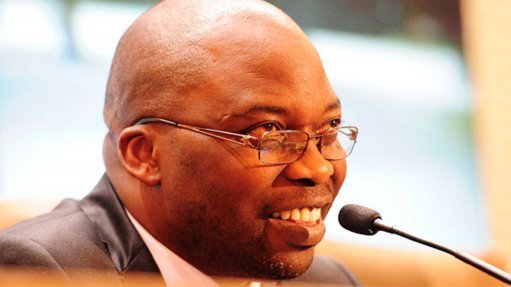
Justice Minister Michael Masutha
A Cabinet-commissioned report has found that South Africa's courts are "doing a good job" in addressing cases that have an impact on the socio-economic conditions of citizens.
Justice Minister Michael Masutha on Friday announced the release of the report, following two years of research by a joint team comprising the department, the University of Fort Hare and the Human Sciences Research Council.
The research team assessed 43 landmark cases by both the Constitutional Court and Supreme Court of Appeal, covering wide-ranging issues of socio-economic rights.
"The report acknowledges that despite a number of landmark judgments confirming the State's obligation to take reasonable measures to ensure the progressive realisation of socio-economic rights, the apex courts always adopted a constrained approach when adjudicating on disputes involving those rights," Masutha said.
The findings showed that problems arose when implementing key court judgments, where other arms of government - such as the executive and legislature - struggled to enact the rulings.
Political will ultimately decided the fate of transformative judgments, the report reads.
Courts were not guilty of overreaching in these 43 cases either.
'The court knows what its role is'
The report comes in a climate where both the leader of Parliament, Speaker Baleka Mbete, and the ruling African National Congress have criticised recent judgments that reviewed the rationality of executive decisions.
It did not, however, focus specifically on political or executive cases, but there was overlap and a pattern of behaviour in the 43 cases that showed judges understood their roles.
Lead researcher Professor Narnia Bohler-Muller said the report essentially showed that the "courts were doing a good job" when it came to upholding socio-economic rights, and that other spheres of government needed to improve implementation.
"The court knows what its role is within the separation of powers... and ensures it plays a very vital role that leaves issues of [action] and budgets to other branches of government."
Cabinet's rationale for approving the study was to see how the courts' judgments on those cases improved and transformed the advancement of socio-economic rights.
Masutha was pleased with the suggestions that there was a need to strengthen accountability, oversight and monitoring with regard to socio-economic rights across all sphere of governments.
Judgment clarity
There was also a need for judgments to have more clarity in some cases, for the purposes of implementation.
Masutha addressed early criticism levelled at Cabinet's commission in 2013, when it was feared the study was designed to infringe on the independence of the courts.
"The assessment was not about reviewing the judgment of the courts, but to look at the consequences of the said judgments on the people and the State."
Masutha also dispelled the notion that civil society was not allowed to criticise court decisions.
The executive and other branches did not have legal tools to review court decisions, but rather the system worked the other way around, and thus criticism of the courts was just that.